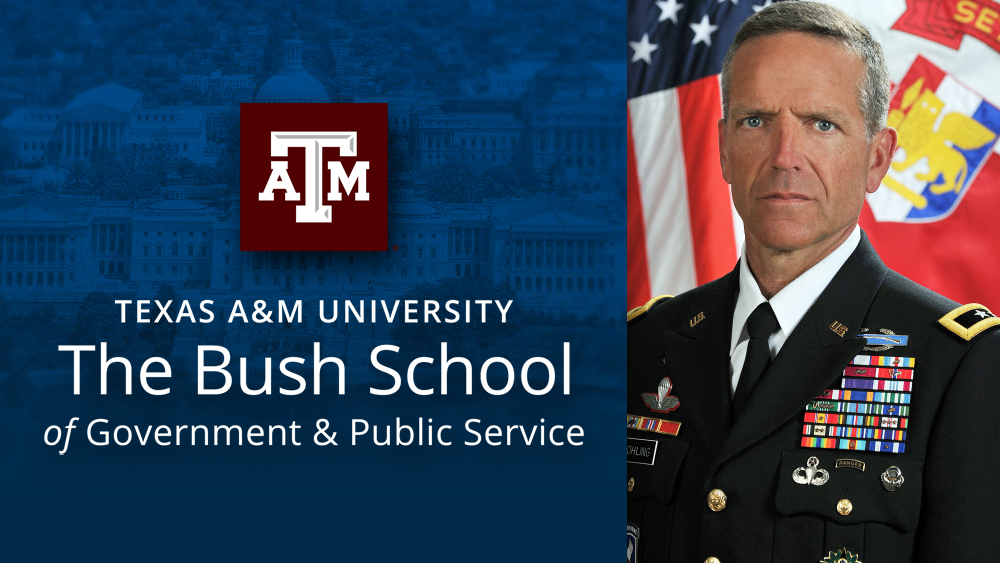
WASHINGTON, DC – Texas A&M University’s Bush School of Government & Public Service recently welcomed the Commander of the U.S. Army Southern European Task Force (SETAF), Africa, as part of its ongoing commitment to bring diverse perspectives of public service to students.
During a virtual event held April 27, 2021, Bush School Executive Director and Lieutenant General (Ret.) Jay Silveria spoke with Major General Andrew M. Rohling about how the Department of Defense coordinates national defense, security strategies, and military activities in Africa. The two also shared experiences from their military careers with Bush School students.
“General Rohling has had a fascinating career, and we are thrilled that he was able to take the time to share a small snapshot of that distinguished career with our students,” said Bush School Executive Director Jay Silveria. “Bringing these real-world experiences to our students, along with the opportunity to meet a diverse group of leaders who have had notable careers in public service, is exactly what the Bush School is all about. There’s no better way to prepare our students for a career in public service than to bring them insight from leaders who have already answered that noble calling.”
“There’s no better way to prepare our students for a career in public service than to bring them insight from leaders who have already answered that noble calling.”
Lieutenant General (Ret.) Jay B. Silveria,
Executive Director of the Bush School of Government & Public Service in Washington, DC
“I certainly didn’t get into it (the military) for the money,” said Rohling. “It was really the opportunity to do something every day that mattered. It’s been an opportunity to do something that makes a difference globally.”
He pointed out that the continent of Africa has fifty-four countries, each with political, economic, and security challenges, as well as its own crises.
“A safe and stable Africa is my number one priority,” he remarked. He stated all forces in the region must work together to resolve issues, mentioning the rescue of an American missionary who had been captured in Nigeria. “It took the ability to fly over Algeria, the ability to stage military in Niger, and to conduct operations in Nigeria.”
Rohling also noted the importance of developing and maintaining economic opportunities, citing the heavy presence of China on the African continent. “We are not in conflict with China, but we are in competition,” he said. “When you step off the plane in many of Africa’s countries, the first thing you see is a sign in Chinese. China has an economic presence in Africa. They are there militarily, not with tanks and troops but by buying and influencing ports. China is absolutely in Africa in a large way.”
He stated the geographic location of the African continent makes it of interest to both China and Russia as well as the United States and Europe. “Africa remains important. People don’t think about it, but it’s important to the United States and Europe for global security.”
“I think our students were very impressed with what General Rohling had to say,” remarked Jay Silveria. “We are grateful he was able to speak with them and answer their questions in addition to providing insight to Africa’s importance to the rest of the world from a military and economic perspective.”
